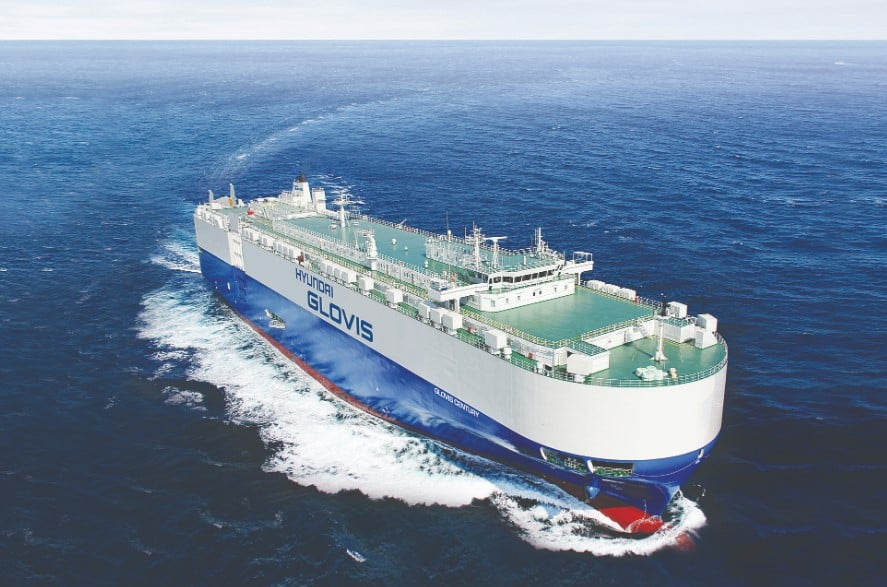Hyundai Glovis, the logistics unit of South Korean auto giant Hyundai Motor Group, is allocating $1.85 billion for the acquisition of 12 LNG dual-fuel car carriers.

Hyundai Glovis has disclosed in a regulatory filing that it will invest US$1.84 billion in the construction of 12 10,800 CEU liquefied natural gas (LNG) dual-fuel PCTCs. The delivery is expected to be completed by the end of September 2027 allowing for an operating service of 20 years for the ships and which will become the largest PCTCs in the world. The largest car carrier currently in service can accommodate a staggering 8,500 vehicles. The investment program, which was approved on October 26, 2023, aims to build a fleet of LNG dual-fuel PCTCs to stabilize the medium- and long-term operations of Hyundai Glovis’ fleet and strengthen its position in the shipping industry, as well as to cope with the ever-increasing international environmental protection regulations.
Hyundai Glovis has not yet disclosed shipyard information, but it is expected that Chinese shipyards will be awarded construction contracts. According to Trade Winds, the South Korean shipowner is in advanced discussions with two Chinese shipyards for newbuilding PCTCs, with each shipyard taking on six.
The Seoul-based diversified owner, best known for its car carrier fleet of over 70 ships also has tankers, bulk carriers, and newbuilds in the gas shipping segment set to enter the market in 2024. Over the past few years, the company has strategically expanded its non-Hyundai customer base to include companies such as Volkswagen, Ford and BMW, businesses that accounted for about 60 percent of the company’s revenue last year.
In recent years, the automotive industry has grappled with a shortage of new car carrier orders, leading to a bottleneck in specialized car transport capacity. The surge in car demand following the pandemic has further exacerbated this challenge, forcing many automakers and logistics providers to turn to container shipments as an alternative.
A total of 48 vessels of 375,000 ceu were ordered in Jan-Oct 2022, already the firmest year since 2007. By the start of November, the orderbook stood at a more than 10-year high of 86 vessels of 641,000 ceu, data from Clarksons Shipbrokers shows.
On October 24, Norwegian shipping company Wallenius Wilhelmsen and China Merchants Jinling Shipyard in Yangzhou signed a contract in Hong Kong for the construction of 4+8 9,350 CEU methanol dual-fuel PCTCs. Delivery of the first four new vessels is scheduled to begin in mid-2026. As the world’s largest ro-ro operator, Wallenius Wilhelmsen owns a fleet of 125 to 135 vessels, and its parent company, Wilh. Wilhelmsen Holding, holds a stake in Hyundai Glovis.